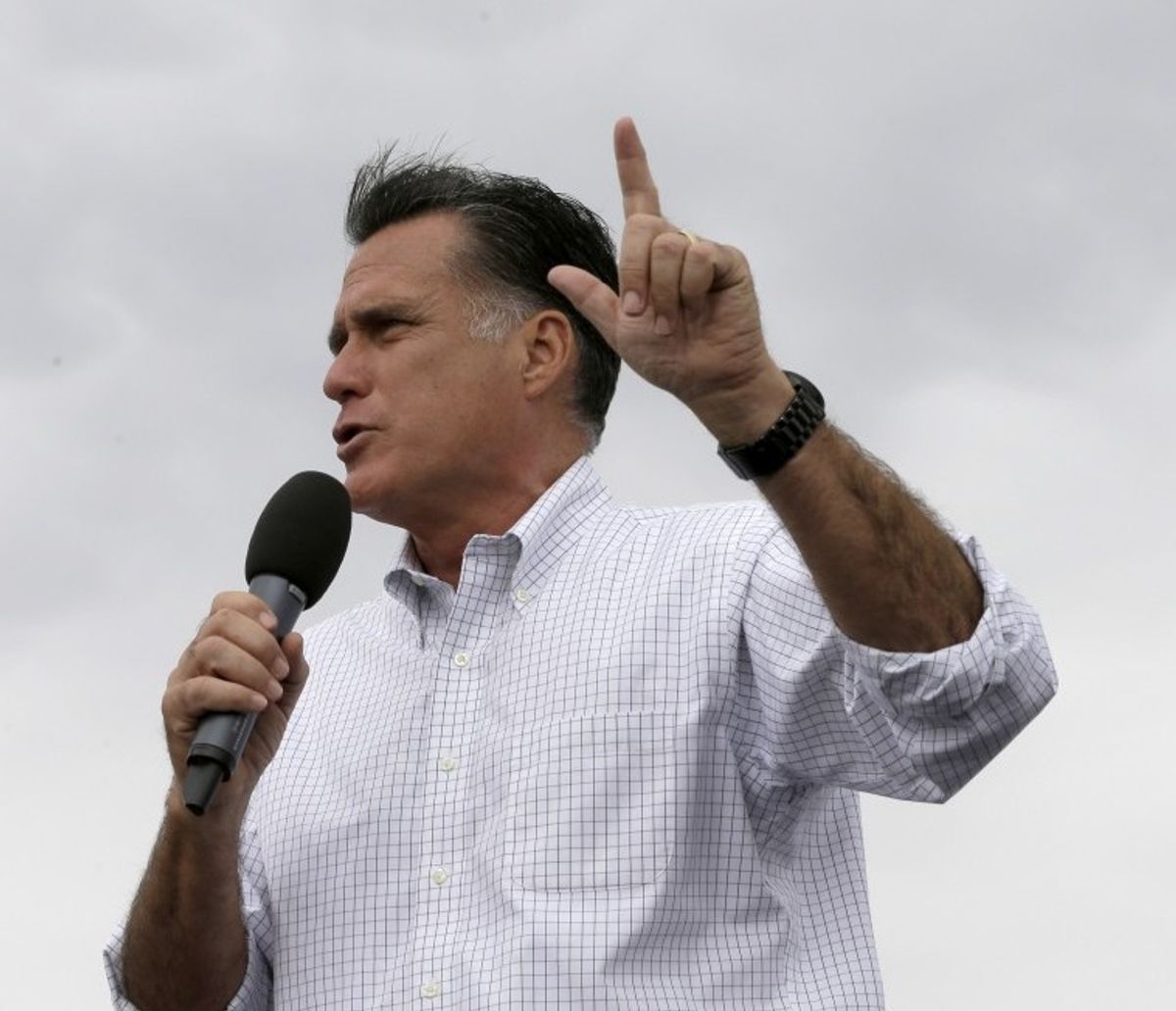 One piece of zombie conventional wisdom — it comes up every election — is the idea that undecided voters will always break for the challenger. It’s what gives hope to Republicans in this race, who assume that the last-minute decisions of undecided voters will push Mitt Romney to the top. Unfortunately for Republicans, there just isn’t much evidence for this assertion.
One piece of zombie conventional wisdom — it comes up every election — is the idea that undecided voters will always break for the challenger. It’s what gives hope to Republicans in this race, who assume that the last-minute decisions of undecided voters will push Mitt Romney to the top. Unfortunately for Republicans, there just isn’t much evidence for this assertion.
Yes, there are elections where undecided voters broke decisively for the challenger: 1980 for Ronald Reagan, 1992 for Bill Clinton. But by and large, undecided voters tend to break evenly, with a slight advantage for the challenger. This past summer, FiveThirtyEight’s Nate Silver tried to quantify this trend. What he found was that the incumbent party candidate — George H.W. Bush in 1988, or Al Gore in 2000 — gains an average of 3.5 points between the September polls and his actual performance on Election Day. The challenger gains slightly more — 3.9 points. Among true incumbents, like Obama, the numbers are a little better for the challenger, but not by much.
More significant than this gain is the fact that challengers tend to lag considerably behind the incumbent for most of the year, and then make up ground after the conventions. Taken together, what this suggests is that what we’re witnessing with the “challenger rule” is a simple reversion to the mean, where candidates begin to pick up the support they should have had in the first place. This is more or less what happened with the Mitt Romney surge that followed the first presidential debate. As many others have pointed out, Romney’s gains began before October 3 — his debate win was a boost, not a jump start.
As for what will happen with the remaining undecideds over the next six days? Using data from three recent YouGov national surveys, political scientist John Sides predicts an even split, 50.1 percent for Obama, versus 49.9 percent for Romney:
A small number of other respondents (3%) indicated that they will vote for a third-party candidate. If we include them along with undecided voters — assuming that at least some third-party voters will end up voting for a major-party candidate — then the prediction is 52% Obama and 48% Romney.
There’s no reason to expect a late surge of undecideds or independents for Mitt Romney. At this point, Romney’s best bet is turnout; if he can supercharge his voters, or if Democrats fail to come out to the polls, then Romney has a real chance. Otherwise, Obama has the advantage.



Shares